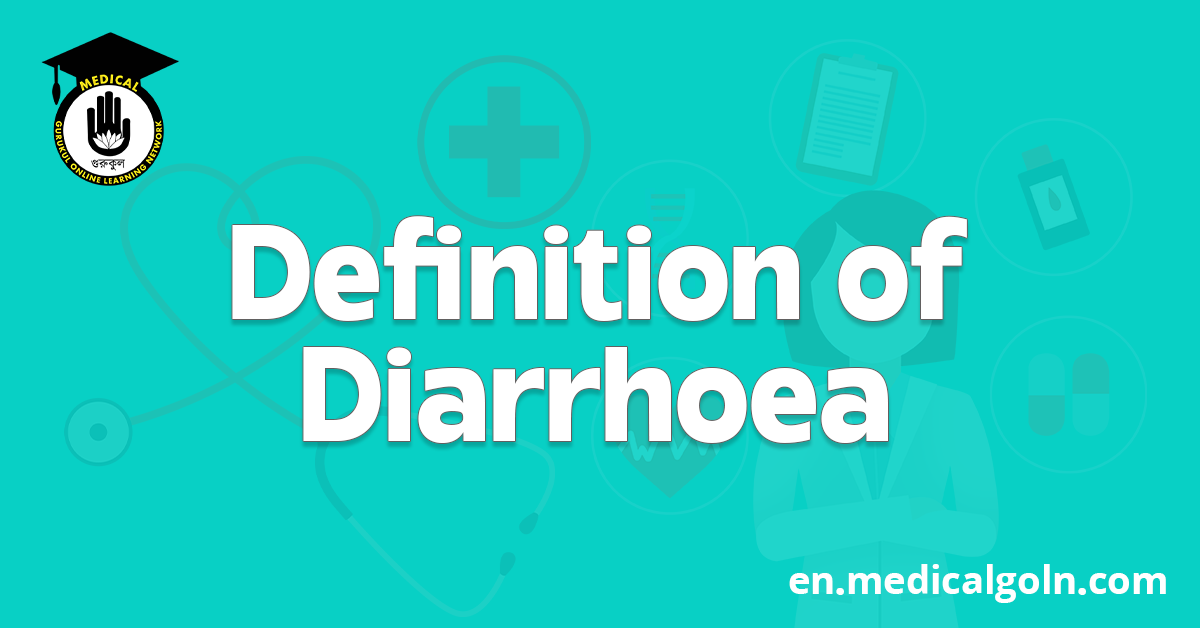Today is our topic of discussion Definition of Diarrhoea
Definition of Diarrhoea

Definition:
Diarrhea is defined as having 3 or more loose or watery stool in a 24-hour period, or as having more stools than is normal for that person. Passage of loose, ‘pasty’ stools by breastfed babies is not diarrhoea.
Loose or watery stool:
If the stool takes the shape of the container, it is called loose or watery.
Classification of diarrhoea:
1. Acute watery diarrhoea – lasts several hours/days (< 14 days); it includes cholera. No blood in stools.
2. Acute bloody diarrhoea ‘dysentery’ (diarrhoea with blood in the stool, either
3. Persistent diarrhoea – lasts 14 days or longer
4. Diarrhoea with severe malnutrition (marasmus or kwashiorkor)
Control of diarrhoeal diseases:
Appropriate clinical management:
a. Oral rehydration therapy
b. Appropriate feeding practice
c. Justified use of antibiotics and other medicines

Measures to reduce incidence:
Better MCH-care practices –
a. Maternal nutrition: Improving prenatal and postnatal nutrition will prevent LBW and also improve quality of breast milk.
b. Child nutrition: Promotion of breast feeding, appropriate weaning and supplementary feeding practices.
Preventive strategies-
a. Sanitation: Improving water supply, excreta disposal and hygiene.
b. Health education: Breast feeding, improved weaning, safe drinking water, use of latrine and proper disposal of excreta.
c. Immunization: against measles and rotavirus.
d. Fly control: Controlling breeding of flies in association with faeces.
Preventing diarrhoeal epidemics:
by strengthening of epidemiological surveillance systems.

[Q. Components of a diarrhoeal disease control programme?
Q. How will you control diarrhoea in a village?
Ans. See above ‘Control of diarrhoeal diseases’ for both questions]
See also :
